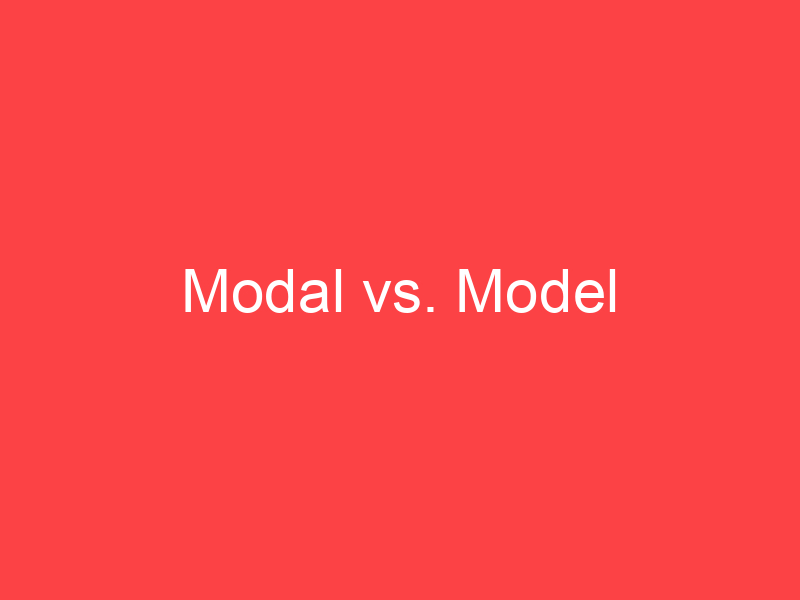-
Modal (adjective)
of, or relating to a mode or modus
-
Modal (adjective)
of, relating to, or describing the mood of a clause
-
Modal (adjective)
of, relating to, or composed in the musical modi by which an octave is divided, associated with emotional moods in Ancient — and in medieval ecclesiastical music
-
Modal (adjective)
of, or relating to the modality between propositions
-
Modal (adjective)
relating to the statistical mode.
-
Modal (adjective)
Having separate modes in which user input has different effects.
“modeless”
-
Modal (adjective)
Requiring immediate user interaction and thus presented so that it cannot be closed or interacted behind until a decision is made.
“a modal dialog; a modal window”
“modeless”
-
Modal (adjective)
Relating to the form of a thing rather to any of its attributes
-
Modal (noun)
A modal proposition.
-
Modal (noun)
A modal form, notably a modal auxiliary.
-
Modal (noun)
A modal verb.
-
Modal (noun)
A modal window, one that cannot be closed until a decision is made.
-
Model (noun)
A person who serves as a subject for artwork or fashion, usually in the medium of photography but also for painting or drawing.
“The beautiful model had her face on the cover of almost every fashion magazine imaginable.”
-
Model (noun)
A person, usually an attractive female, hired to show items or goods to the public, such as items given away as prizes on a TV game show.
-
Model (noun)
A representation of a physical object, usually in miniature.
“The boy played with a model of a World War II fighter plane.”
-
Model (noun)
A simplified representation used to explain the workings of a real world system or event.
“The computer weather model did not correctly predict the path of the hurricane.”
-
Model (noun)
A style, type, or design.
“He decided to buy the turbo engine model of the sports car.”
-
Model (noun)
The structural design of a complex system.
“The team developed a sound business model.”
-
Model (noun)
A successful example to be copied, with or without modifications.
“He was a model of eloquence and virtue.”
“British parliamentary democracy was seen as a model for other countries to follow.”
-
Model (noun)
An interpretation function which assigns a truth value to each atomic proposition.
-
Model (noun)
An interpretation which makes a certain sentence true, in which case that interpretation is called a model of that sentence.
-
Model (noun)
A particular style, design, or make of a particular product.
“This year’s model features four doors instead of two.”
-
Model (noun)
An identifier of a product given by its manufacturer (also called model number).
-
Model (noun)
An animal that is used to study a human disease or pathology.
-
Model (noun)
Any copy, or resemblance, more or less exact.
-
Model (noun)
In software applications using the model-view-controller design pattern, the part or parts of the application that manage the data.
-
Model (adjective)
Worthy of being a model; exemplary.
-
Model (verb)
To display for others to see, especially in regard to wearing clothing while performing the role of a fashion model.
“She modelled the shoes for her friends to see.”
-
Model (verb)
To use as an object in the creation of a forecast or model.
“They modelled the data with a computer to analyze the experiment’s results.”
-
Model (verb)
To make a miniature model of.
“He takes great pride in his skill at modeling airplanes.”
-
Model (verb)
To create from a substance such as clay.
“The sculptor modelled the clay into the form of a dolphin.”
-
Model (verb)
To make a model or models.
-
Model (verb)
To be a model of any kind.
“The actress used to model before being discovered by Hollywood.”

